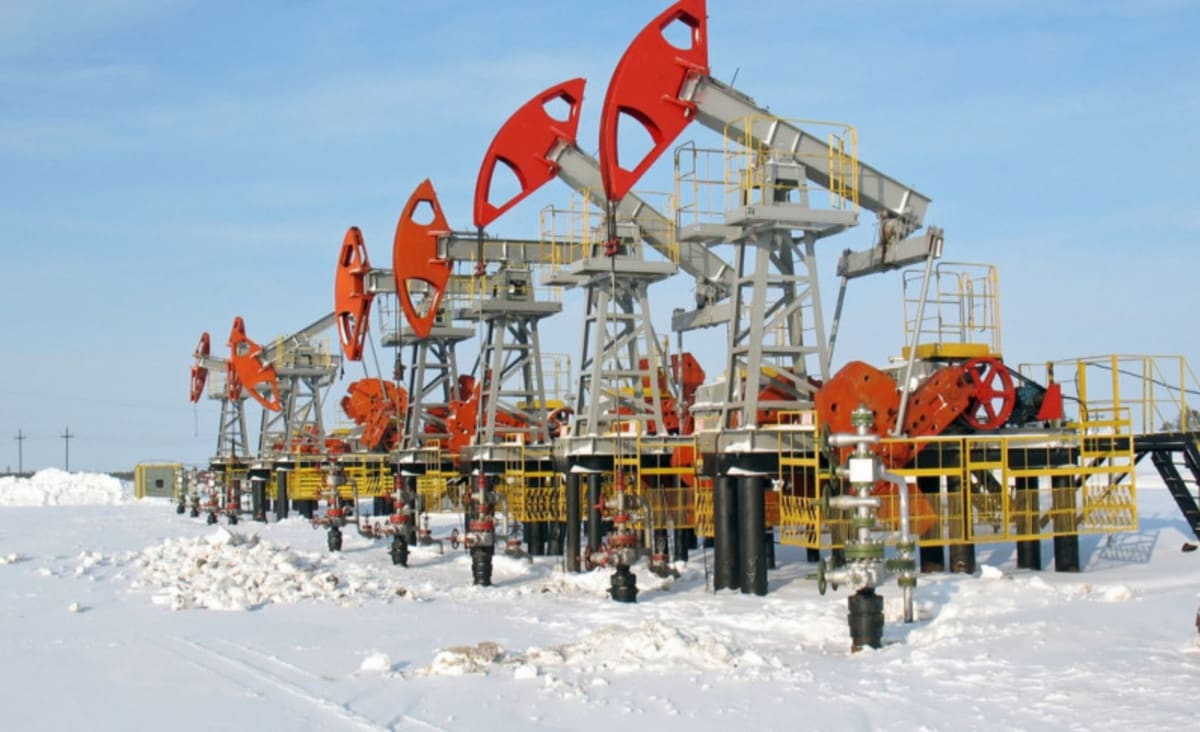
interestingengineering.com
The US bans Russian energy imports. Here's what it means
By imposing sanctions on Russian energy exports, the U.S. has shown that it is willing to go the distance to stop the Russian invasion.
Economy
In a bid to put pressure on Russian President Vladimir Putin to back down from the invasion of Ukraine, the U.S. government has announced a complete ban on Russian oil, liquified natural gas, and coal, the White House said in a press release. U.S. President Joe Biden signed an Executive Order (E.O) to this effect after consulting with its allies.
The U.S. move on energy comes after it imposed economic sanctions on Russian banks and also targeted industrial production in Russia. President Putin has not shown signs of halting what he calls a 'special military operation' and by introducing energy-related sanctions, the U.S. is signaling that it can hit Russia where it hurts the most since energy exports are the mainstay of the Russian economy.
The E.O. bans the import of oil, liquified natural gas, and coal from Russia and provides a 45-day winding down period for existing contracts. It also prevents Americans and U.S.-based companies from investing, enabling, or financing other companies that are willing to invest in the Russian energy sector.
How much Russian oil does the U.S. import?
According to the White House statement, the U.S. imported 700,000 barrels of oil per day from Russia last year. While this might seem a lot, it is less than 10 percent of U.S. oil imports.
According to a New York Times report, the U.S. was actually the largest producer of oil in 2020 while third-placed Russia's production was about half of that of the U.S. So, the U.S. does not rely as much on Russian oil and most of its imports are rather opportunistic and meant to keep its refineries running smoothly, Financial Times reported.
Ally to the U.S., the U.K. relies much more on Russian imports but had previously also announced that it will wean off from Russian imports by the end of the year. However, European countries, that do not have massive oil production capabilities and are heavily reliant on Russian exports haven't yet announced such sanctions.
The impact of banning Russian oil on the economy
Since the conflict began in Ukraine, crude oil prices have risen significantly. After the White House statement, they shot up another 6 percent to reach almost $130 a barrel before settling down a little later in the day.
However, Russia hit back by saying that the crude oil prices could reach $300 a barrel in the light of these sanctions and even threatened to cut gas supply to Europe, Reuters reported.
Increasing crude prices have already affected prices at gas stations with the average prices crossing over $4 in the U.S., a record of its own. The impact of these higher prices will be visible as inflation in the U.S is expected to cross eight percent this month, New York Times said in its report.
In the recent past, the U.S. tapped into its strategic petroleum reserves to simmer rising prices and the White House confirmed that 60 million barrels will once again be released into the global markets from these reserves to ensure stable energy supply and prevent gas prices from escalating further.
It is likely that in the short-term U.S. oil production will be pressed further into action to address the global demand but President Biden reiterated the transition to cleaner fuels to reduce dependence on oil and natural gas and become energy independent.
























































